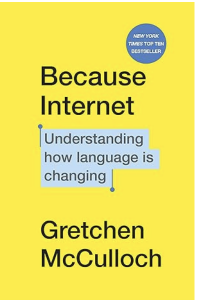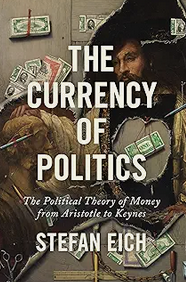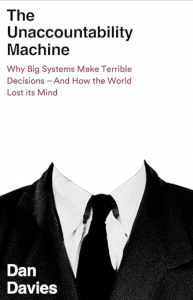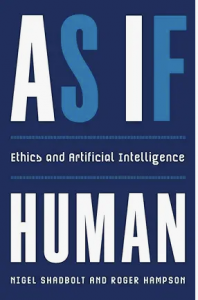The house is full of slightly random books. I picked up one sent to Rory, Because Internet: Understanding how language is changing by Gretchen McCulloch, a few years old now. She’s a linguist and the book is about the way being online has been changing everyday use of language. It was a surprisingly enjoyable read, very engagingly written and full of interesting observations and ideas. A few examples:
“We’re all writing for the unblinking eye of Data.” Even truer now in the era of LLMs.
The idea of ‘context collapse’ from danah boyd. A new phrase to me: “[a] term for when people from all your overlapping friend groups see all your shared posts from different aspects of your life.” The opposite of a concept I’ve found useful, ‘privacy in public’, when in the offline world we would willingly share sensitive information with certain other people but not everyone, and not in a way that different bits of information could be joined up. For instance, my GP is welcome to know details about my health but Palantir not so much unless I’m sure they can’t do me damage with it.
Ray Oldenburg’s concept of ‘third places’ (from his 1989 book The Great Good Place), social spaces where you can meet and chat with others. The local cafe or pub, the hallway at a conference. (One thing not I’ve not seen much discussed in the hype and counter-hype about Jonathan Haidt’s new book is that one reason teens are online so much is that modern society has removed all the places they used to be able to hang out in.)
And my favourite: texts and textiles have the same root, the indo-European teks (‘to weave’). (So does technology.) I’m from a Lancashire cotton mill family and thought that was why I collect blankets, towels, fabrics. It turns out that and accumulating books are essentially doing the same thing.
Others would surely pick out other things. There are chapters on emojis, memes, tone online and much else. A very nice book for anyone who likes words.





